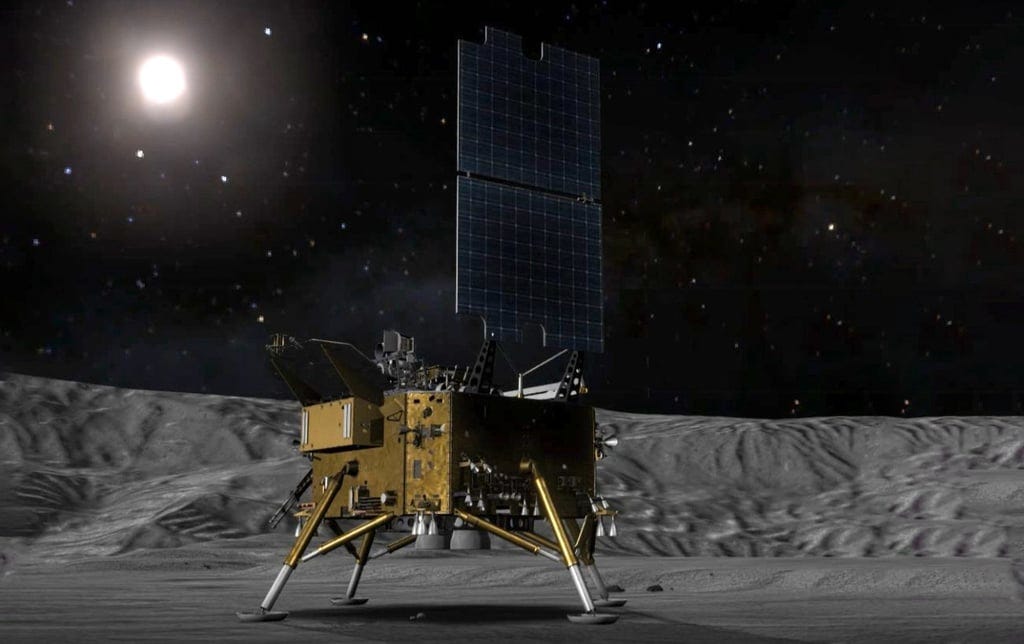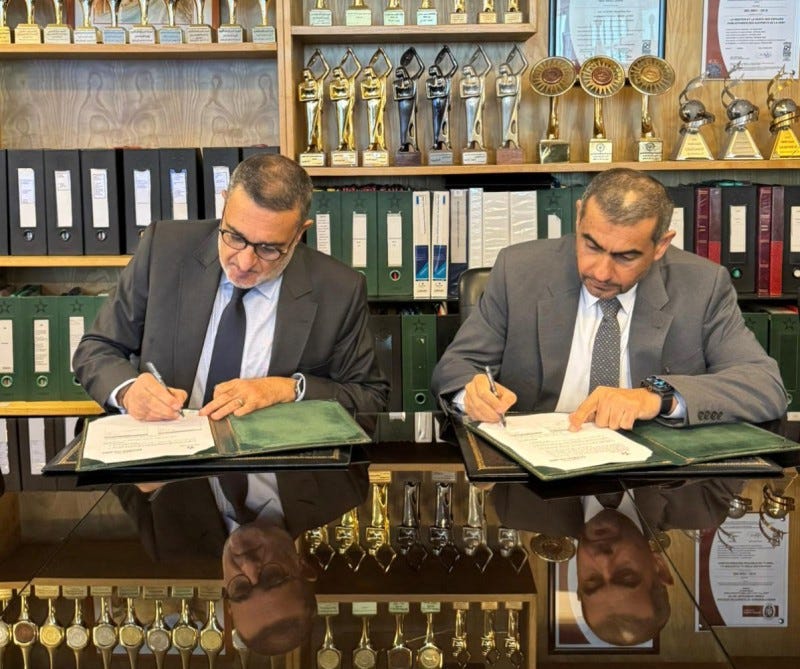Middle East Space Roundup: 20 to 26 January 2025
A summary of all the space news in the Greater Middle East over the past week, brought to you by AzurX
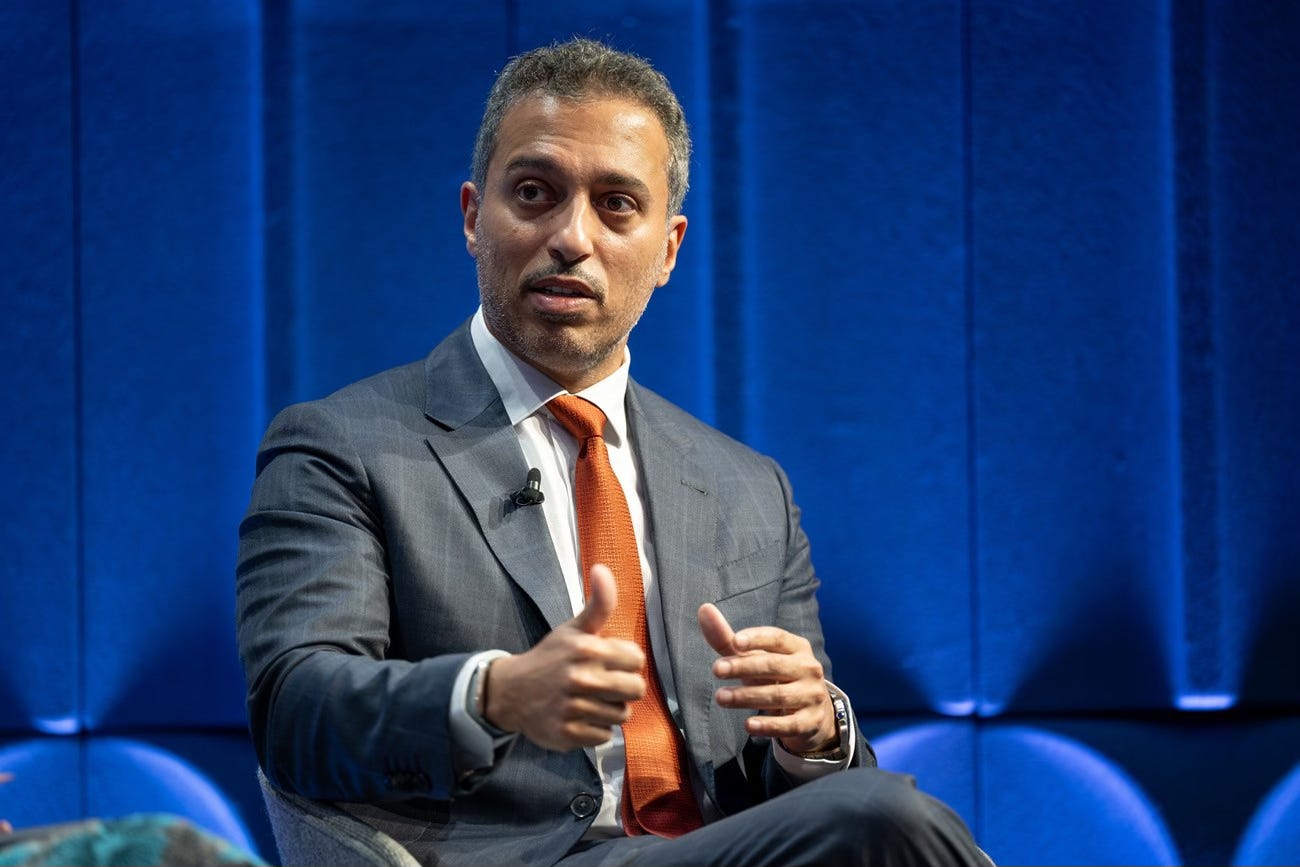
The following are the major space developments in the Greater Middle East region tracked by Middle East Space Monitor over the past week:
UAE Space Developments
UAE Minister Calls for Global Inclusivity in Space Exploration
Dr. Ahmad Belhoul Al Falasi, UAE Minister of Sports and Chairman of the UAE Space Agency, emphasized the importance of global inclusivity in space exploration during the multilateral meeting "Space: Leaving No Country Behind," held at the World Economic Forum (WEF) 2025 in Davos. Dr. Al Falasi highlighted the UAE’s commitment to fostering international partnerships, sharing expertise, and supporting emerging space nations to harness space technology for sustainable development. The meeting, attended by prominent leaders from global space agencies, industry executives, and policymakers, focused on collaborative strategies for advancing national space ecosystems, reducing the costs of space activities, and maximizing economic and technological benefits. The UAE’s delegation, led by Sheikha Latifa bint Mohammed bin Rashid Al Maktoum, underscored the country’s proactive approach to global space leadership under the pavilion theme "Nothing is Impossible." By advocating cooperation and innovation, the UAE aims to integrate space activities into broader economic and technological agendas, reinforcing its role as a key player in the international space sector.
Report: South Korea’s Satrec Initiative Makes Attractive Earth Observation Satellite Offer to UAE MoD
The UAE Ministry of Defence’s tender for optical high-resolution Earth observation satellites has attracted competitive bids, including a strong offer from South Korea’s Satrec Initiative, which proposes a cost-effective package featuring its SpaceEye-T (30 cm resolution) and four SpaceEye-R satellites (50 cm resolution), according to the not-always-reliable publication Tactical Report. Satrec’s offer reportedly includes technology transfer and joint production, appealing to the UAE’s goal of enhancing local space capabilities, and undercuts Airbus Defence and Space in cost. However, Airbus remains the frontrunner due to its established reputation, ability to meet the required 25 cm resolution, and longstanding client relationships. The UAE’s interest in diversifying partnerships, coupled with the strategic urgency of enhancing its satellite infrastructure, could influence the final decision, expected by late 2025. This tender highlights the UAE’s focus on bolstering its space capabilities while exploring broader international collaborations.
UAE’s Al Kahtim Astronomical Observatory Joins International Asteroid Warning Network
The Al Khatim Astronomical Observatory in Abu Dhabi, UAE, has joined the United Nations-coordinated International Asteroid Warning Network (IAWN), marking it as the only Arab member among global space organizations such as NASA, ESA, and JAXA. This membership enhances international collaboration in monitoring potentially hazardous asteroids and developing planetary defense technologies. Engineer Khalfan bin Sultan Al Nuaimi, President of the International Astronomical Center (IAC), emphasized the observatory's critical role in advancing asteroid tracking and early warning systems. Additionally, IAC has been accepted into the United Nation’s working group for the International Year of Asteroid Awareness and Earth Protection 2029, which aligns with global efforts to address asteroid threats, notably in preparation for the close approach of asteroid Apophis in April 2029. This milestone underscores the UAE’s growing contributions to global space science, fostering data exchange and innovation in planetary defense to safeguard Earth.
UAE Expert: MBZ-SAT Transitions UAE From Satellite Importer to Satellite Exporter
In the Khaleej Times, Dr. Abdulrahim bin Ahmed Al Farhan writes that the UAE's recent launch of the MBZ-SAT Earth observation satellite, its most advanced satellite to date, marks a significant milestone in the country's space technology capabilities and strategic vision. Developed almost entirely by Emirati expertise, this achievement underscores the UAE's transition from a technology importer to a global hub for innovation and export in space technologies. The satellite's advanced imaging precision and rapid data delivery capabilities enhance critical sectors such as Earth observation, natural resource management, disaster response, and climate change monitoring. By aligning cutting-edge technology with sustainable development, the UAE strengthens its global economic position and sets a benchmark for integrating space advancements with economic efficiency. Beyond its technical impact, the project fosters local job creation, boosts collaboration with domestic companies, and solidifies the UAE’s reputation as a leader in delivering value-added space services. This initiative highlights the UAE's commitment to leveraging science and technology for economic prosperity and global cooperation, positioning the country as a key player in addressing global challenges through innovative solutions.
Analysts: UAE, Gulf Countries, Harnessing Satellite Internet for Resilient Digital Connectivity
The Gulf region, particularly the UAE, stands at the forefront of embracing satellite internet as a transformative solution to enhance digital resilience, inclusivity, and strategic independence in an era of increasing reliance on internet connectivity, according to Armen Kherlopian and Neel Vohra writing for the Observer Research Foundation. With submarine cables remaining vulnerable to disruptions from geopolitical tensions and natural disasters, satellite systems like SpaceX’s Starlink offer an innovative alternative, as demonstrated in Armenia’s recent adoption of the technology. For the UAE, which approved Starlink in mid-2024, this technology provides critical advantages, including bolstered connectivity in remote and rural areas, enhanced economic and operational efficiency in key industries, and reduced reliance on politically sensitive submarine cables. However, these opportunities come with challenges such as high deployment costs, regulatory complexities, data sovereignty concerns, and the potential for geopolitical tensions. To maximize benefits, Gulf countries must develop robust regulatory frameworks, prioritize local ground station investments, and foster public-private partnerships to drive affordable deployment. By leveraging satellite internet’s potential while addressing associated risks, the Gulf region can solidify its role as a global digital hub, aligning with long-term ambitions like the UAE’s Vision 2030 and its aspirations for technological leadership in the global economy.
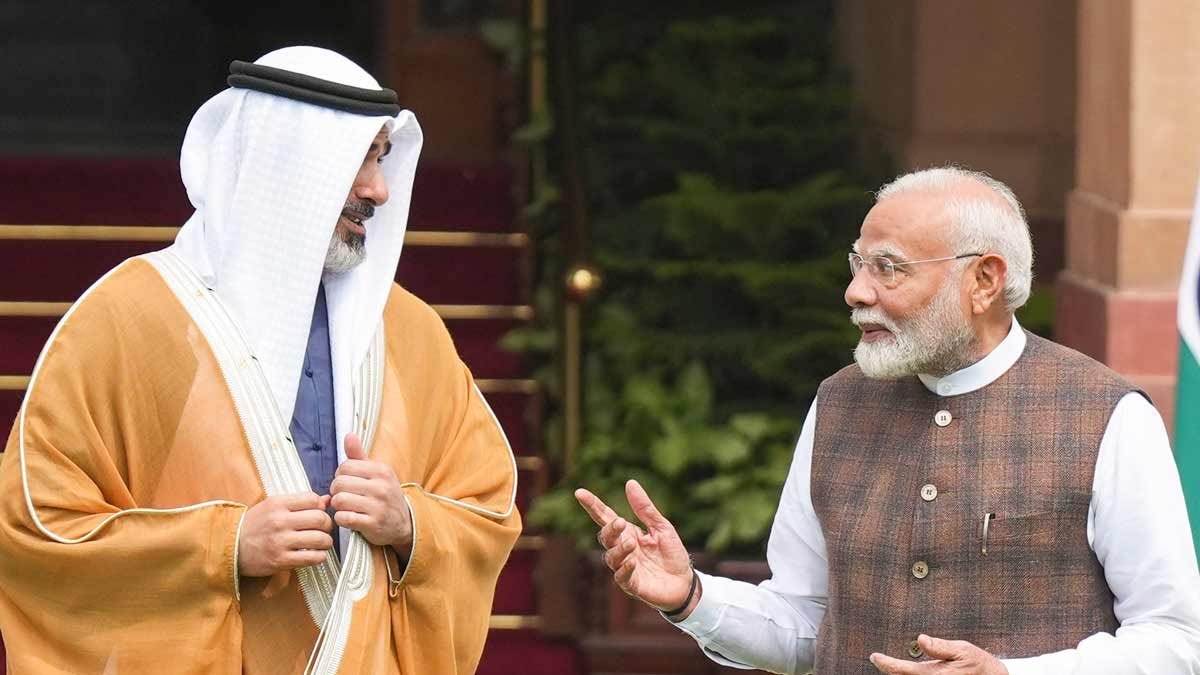
UAE and India Deepen Space Cooperation Ties
India and the UAE are deepening their bilateral relationship across key sectors, with space technology emerging as a critical area of collaboration. The Indian Space Research Organisation (ISRO) and the UAE Space Agency (UAESA) have partnered on initiatives that range from the UAE's Mars mission, Hope Probe, to satellite deployments focused on agriculture, disaster management, and environmental conservation. This partnership reflects a broader alignment of their space ambitions, combining India's cost-effective expertise with the UAE's advanced aspirations. Together, this collaboration underscores the growing strategic alignment between India and the UAE in fostering technological innovation and economic development.
Arab Health 2025 Partners With U.S. to Send UAE Students to NASA’s Space Camp
Arab Health 2025 has partnered with the Astronaut Al Worden Endeavour Scholarship to send five Emirati students on a transformative 10-day mission to the United States, culminating in a week-long Advanced Space Academy experience at NASA’s U.S. Space Camp in Huntsville, Alabama. This initiative, aimed at fostering innovation in healthcare and space exploration, aligns with the UAE’s ambitious agendas in these sectors. Students will participate in astronaut training exercises, engineering challenges, and simulated space missions under mentorship from legendary NASA figures, while addressing the theme "Health Sciences and Space Exploration: Pioneering Together for Humanity." Organized by Kallman Worldwide and supported by entities like the Mohammed Bin Rashid Space Centre (MBRSC), the program underscores Arab Health’s commitment to STEM education and innovation, bridging space exploration and healthcare to inspire future breakthroughs. The 50th edition of Arab Health will also host the Future Health Summit and the inaugural Eco-sphere health and wellness area, solidifying its role as a platform for advancing global healthcare innovation.
Türkiye Space News
Türkiye’s Plan-S Reveals Huge IoT and Earth Observation Satellite Ambitions
Türkiye’s Plan-S launch of four new satellites for its Connecta Internet of Things (IoT) network brings its constellation to eight operational satellites and reinforces its position as a leader in satellite-based IoT communication. This milestone is part of the second deployment phase of the Connecta IoT network, designed to provide global connectivity solutions across sectors such as agriculture, maritime, energy, and disaster management. The satellites, launched from Vandenberg Space Force Base in January 2025 as part of the Transporter-12 mission, feature advanced hardware and software upgrades to enhance operational efficiency and reliability. Plan-S, established in 2021 and headquartered in Türkiye, is ambitiously scaling its operations, targeting a future constellation of over 200 satellites. The company has also secured contracts for additional launches in 2025 and is expanding into Earth observation with its first satellite under the Observa Constellation project slated for launch this year. By addressing connectivity gaps and enabling seamless IoT communication worldwide, Plan-S is driving innovation and contributing to a more connected and efficient global ecosystem.
Türkiye’s Middle East Technical University Partners With China’s STAR.VISION for Chang’e-8 Lunar Micro-Rover
China's private aerospace sector is taking a significant step forward as STAR.VISION, a Hangzhou-based company, prepares to launch two AI-controlled lunar exploration robots as part of the Chang’e-8 mission in 2028. This marks the first time a Chinese private company has been directly involved in a space exploration sub-project, traditionally managed by state-owned entities. The initiative, a collaboration between STAR.VISION, Zhejiang University, and Middle East Technical University in Türkiye, highlights China's growing emphasis on commercial and international partnerships in space exploration. Leveraging AI, the autonomous robots will interact and share data to achieve complex tasks on the Moon, addressing communication delays due to the Moon's distance and challenging conditions at the lunar south pole. The mission will also test technologies for a future lunar research station and communication hub. STAR.VISION’s involvement underscores the expanding role of AI in overcoming the technical hurdles of space exploration, including extreme temperatures, reduced gravity, and extended lunar nights, while solidifying China's strategic ambitions to land astronauts on the Moon by 2030 and establish a research base by 2035.
Türkiye Breaks Ground on Spaceport Construction in Somalia
Türkiye has commenced construction of a rocket and space launch facility in Somalia, a strategic move that advances both its space ambitions and geopolitical influence in the Horn of Africa. The facility announced earlier in 2024 and ideally positioned near the equator, will capitalize on Somalia’s geographic advantages for energy-efficient launches while enabling debris to safely fall into the Indian Ocean. This initiative aligns with Türkiye's 10-year space plan, which includes satellite development, spaceport creation, and milestones such as sending its first astronaut to the ISS in 2024. It also underscores Türkiye's deepening ties with Somalia, where Ankara has made substantial investments in defense, hydrocarbons, and infrastructure, including training Somali forces at the TURKSOM camp and securing exclusive petroleum exploration rights in Somali waters. Somalia’s President Hassan Sheikh Mohamud highlighted the project’s significance, viewing it as a transformative economic and technological partnership. Türkiye’s increasing presence in the region, including its role as a mediator in local conflicts, reflects a dual strategy of solidifying its status as a spacefaring nation and strengthening its geopolitical foothold in East Africa, fostering economic opportunities and reinforcing bilateral relations that trace back to the Ottoman Empire.
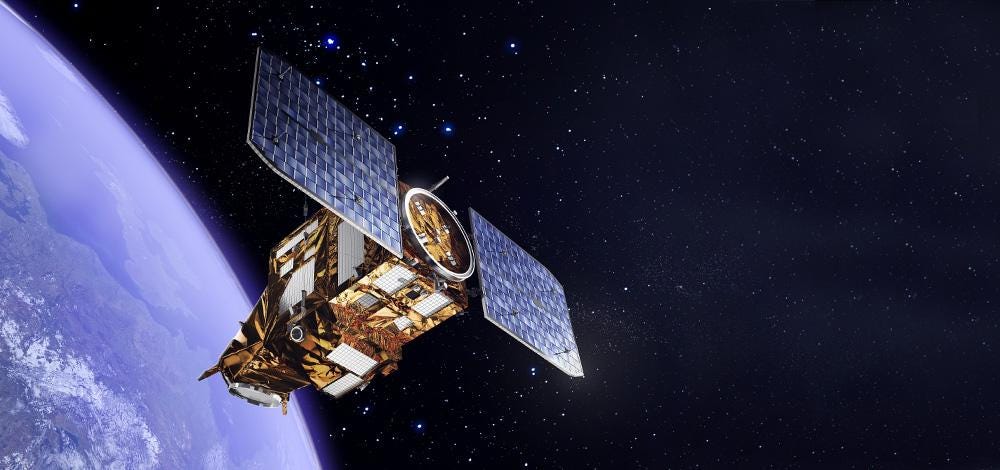
Türkiye’s GÖKTÜRK-1 Renewal Satellite and GÖKTÜRK-Y Production Underway
Türkiye is advancing its space technology ambitions with critical milestones in the GÖKTÜRK reconnaissance satellite programs, key projects aimed at bolstering the country’s independence in Earth observation and space capabilities. The GÖKTÜRK-1 Renewal Satellite has entered thermal model testing, a crucial phase to assess its resilience under launch and space conditions, paving the way for production and eventual deployment. Simultaneously, the GÖKTÜRK-Y satellite project, initiated in 2021, has successfully completed its Preliminary Design Review and is progressing towards its Critical Design Review in 2025. Designed for reconnaissance and ground observation using an electro-optical camera, GÖKTÜRK-Y will operate in low-Earth orbit (LEO) with a projected lifespan of seven years. Notably, the project integrates domestically developed computer systems by Turkish Aerospace Industries (TUSAŞ), reflecting Türkiye’s strategic focus on enhancing domestic production and reducing reliance on foreign technologies. Together, these initiatives signify a substantial leap in Türkiye's operational independence in space and position it as a competitive player in the global space technology arena.
Türkiye's TEKNOFEST Announces 10th Model Satellite Competition
The TEKNOFEST Model Satellite Competition, now in its 10th year, serves as a pivotal platform for fostering talent and innovation in space technologies among young engineers and scientists in Türkiye. Organized under the leadership of the Turkish Technology Team Foundation (T3 Foundation) and the Ministry of Industry and Technology, the competition challenges participants to design and operate model satellites capable of tasks such as atmospheric entry, data collection, and image transmission. Divided into three categories—Multi-Spectral Mechanical Filtering Module, TICOSAT (TURKSAT Picosatellite Constellation), and Near Space Traveler—the event offers substantial cash prizes, motivating participants to engage deeply with interdisciplinary problem-solving and practical applications of space technology. Beyond hands-on experience, the competition facilitates networking with industry professionals, institutions, and technology companies, providing career-shaping opportunities. As part of the larger TEKNOFEST Aviation, Space, and Technology Festival, the initiative underscores Türkiye's commitment to cultivating a skilled workforce in aerospace, inspiring the next generation to contribute to the advancement of global space technologies.
Azerbaijan Space News
Azerbaijan’s IDDA Partners With Israel’s IAI for Innovation and Technology Center of Excellence
Azerbaijan's Innovation and Digital Development Agency has signed a Memorandum of Understanding (MoU) with Israel Aerospace Industries (IAI) to strengthen bilateral cooperation in innovation and technology, including space technology. The agreement includes plans to establish a Centre of Excellence, focusing on human capital development and the exploration of cutting-edge innovations across various technological fields. The partnership will also feature joint events, seminars, and forums to facilitate knowledge exchange and enhance collaboration. As Israel's largest aerospace and defense company, IAI brings extensive expertise in aerospace, defense, and green technologies, aligning with Azerbaijan’s ambitions to expand its technological capabilities. This collaboration is expected to foster significant advancements in innovation and contribute to the growth of both countries' tech sectors, while further solidifying economic and industrial ties.
Azercosmos, Space Camp Türkiye, and Azerbaijan Education Group Launch Galactic Space Camp for Aspiring Space Leaders
SPACE Academy of Azercosmos, Space Camp Türkiye, and the "Azerbaijan Private Educational Institutions Association" Public Union have joined forces to present the Galactic Space Camp, offering a unique experience for aspiring space enthusiasts. The camp will feature workshops on STEM, Artificial Intelligence (AI), aerospace engineering, and startups, providing valuable insights into key space industry fields. Participants will have the chance to explore space through NASA-designed simulators, observe lunar craters, Jupiter’s belts, and Saturn’s rings through telescopes, and engage in interactive exhibits at the Mars Exploration Zone. This hands-on approach to space education aims to inspire and equip the next generation of space leaders, while fostering innovation and collaboration in space exploration.
Saudi Arabia Space Developments
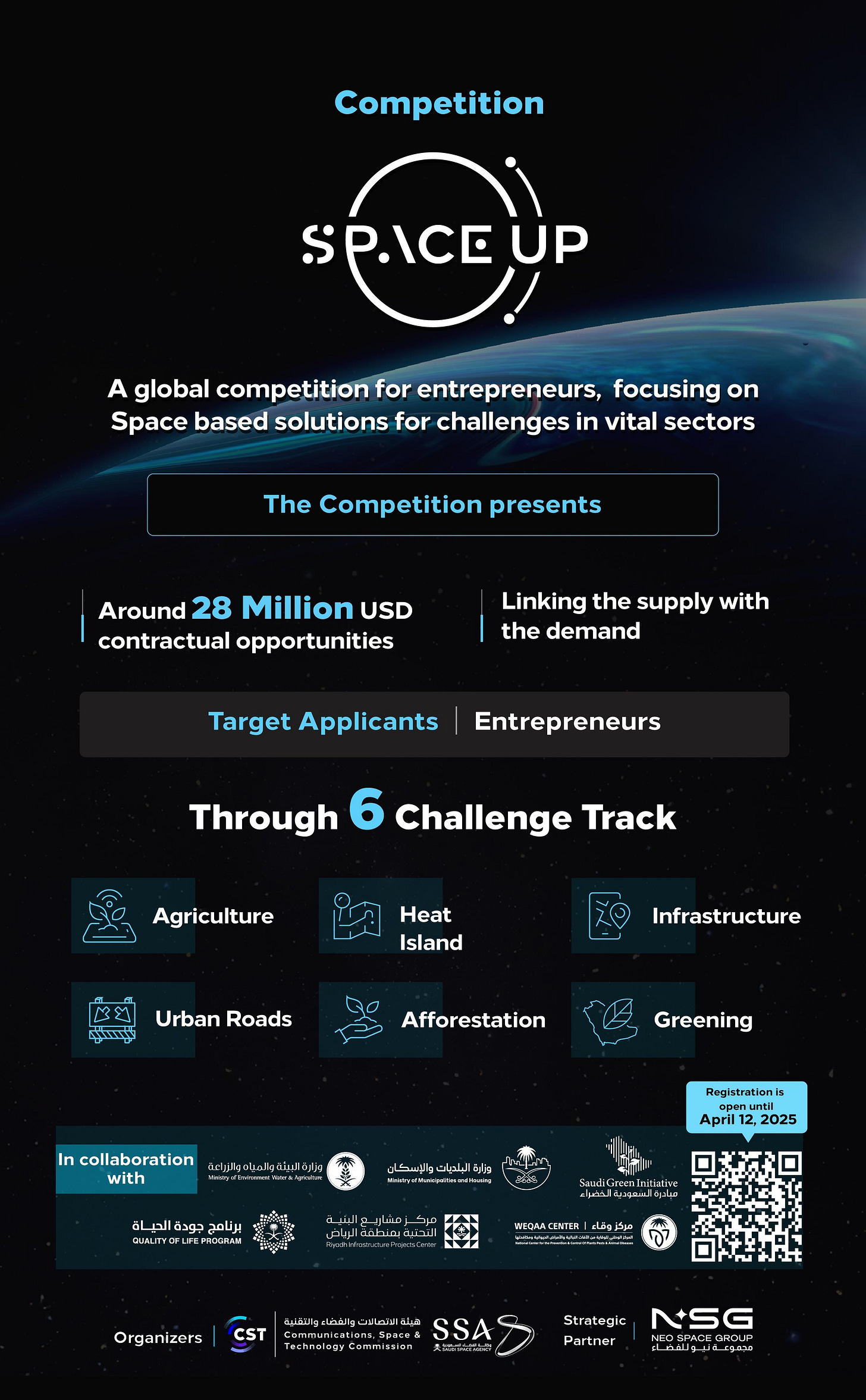
Saudi Arabia’s Government Launches $28 Million SpaceUp Competition
Saudi Arabia’s Communications, Space and Technology Commission (CST) and the Saudi Space Agency (SSA) have launched the SpaceUp Competition, a global initiative in partnership with Neo Space Group (NSG) to foster space entrepreneurship and innovation. Targeting entrepreneurs, startups, and SMEs globally, the competition offers $28 million in contractual opportunities across six challenge tracks that address sector-specific issues through space-based solutions. Key tracks include monitoring date palm pests, reducing urban heat islands, managing infrastructure impacts, optimizing road assets, mapping urban trees, and supporting the Saudi Green Initiative. In addition to financial incentives, participants gain access to end-users, localization opportunities, and direct implementation pathways for their solutions. This initiative underscores Saudi Arabia's commitment to enhancing its space sector, stimulating innovation, and integrating advanced space technologies into vital industries, aligning with its broader sustainability and development goals. Registration is open from 20 January to 12 April 2025.
Saudi Arabia’s KAUST Leveraging AI for Earth Observation and Satellite Imagery
Saudi Arabia is leveraging artificial intelligence (AI) to advance its Vision 2030 sustainability and innovation goals, with a focus on combating environmental challenges such as land degradation, water scarcity, and climate adaptation. The King Abdullah University of Science and Technology (KAUST) plays a leading role through its Center of Excellence for Generative AI, which integrates multidisciplinary research in AI-assisted Earth observation and satellite imaging. These technologies enable real-time monitoring of ecosystems, optimizing land management, and supporting the Saudi Green Initiative’s ambitious goals of planting 10 billion trees and rehabilitating 40 million hectares of degraded land. AI is also transforming climate forecasting in the Kingdom, with models offering greater accuracy and actionable insights for extreme weather events like heatwaves and flash floods. Despite limited regional AI-driven forecasting systems, Saudi Arabia is collaborating with global tech leaders like Meta and Nvidia, while national entities such as NEOM and Aramco provide vital partnerships. These efforts not only enhance environmental sustainability but also address the local talent gap through training programs, aligning technological advancement with economic diversification and resilience.
With the Acquisition of UP42, Saudi Arabia’s Neo Space Group Enters the Hyperspectral Market
Neo Space Group’s (NSG) recent acquisition of UP42, a Berlin-based geospatial platform founded by Airbus in 2019, creates a robust Earth observation ecosystem in Saudi Arabia, focusing on key sectors such as government, agriculture, energy, and tourism. UP42’s advanced platform simplifies data access and analysis through a browser-based console, API, and SDK, supporting over 140 Earth observation data collections. Its adoption of the STAC standard and partnerships with providers like Planet Labs, Hexagon, and Wyvern has expanded its capabilities, including high-resolution and hyperspectral imagery. This acquisition aligns with NSG's geospatial expansion strategy, building on its earlier rebranding of Taqnia ETS into NSG Geospatial Services and securing Saudi Arabia’s Earth Observation Platform Service permit. By integrating UP42’s technologies, NSG is poised to enhance its geospatial services, leveraging innovations such as Wyvern’s hyperspectral imagery for applications in agriculture, energy, and environmental monitoring. This acquisition reflects NSG’s commitment to establishing Saudi Arabia as a leader in the global geospatial industry.
Geospatial: Esri Saudi Arabia User Conference 2025 Returns for Its 3rd Edition
The 2025 Esri Saudi Arabia User Conference took place 21 to 22 January 2025 in Riyadh, Saudi Arabia, gathering over 1,800 participants from government, private organizations, and academia to explore advancements in Geographic Information System (GIS) technology under the theme "GIS: Uniting Our World." The conference aligns with Saudi Arabia's Vision 2030 by highlighting GIS's transformative role in urban planning, smart cities, and sustainability initiatives. Key developments include the launch of the Saudi Arabia GeoExcellence Award and the signing of strategic partnerships and MoUs with local and international organizations to enhance geospatial innovation and digital transformation. Notable collaborations include an MoU with Neo Space Group to advance GIS adoption and an LOI between Prince Sultan University and Redlands University to bolster academic research in geospatial sciences. Esri Saudi Arabia also showcased its involvement in flagship projects like NEOM and The Red Sea Project, emphasizing GIS's role in infrastructure optimization and environmental monitoring. As a leader in GIS solutions, Esri Saudi Arabia remains committed to fostering a geospatial knowledge economy, supporting economic diversification, and driving sustainable development across the Kingdom.
Iran Space News
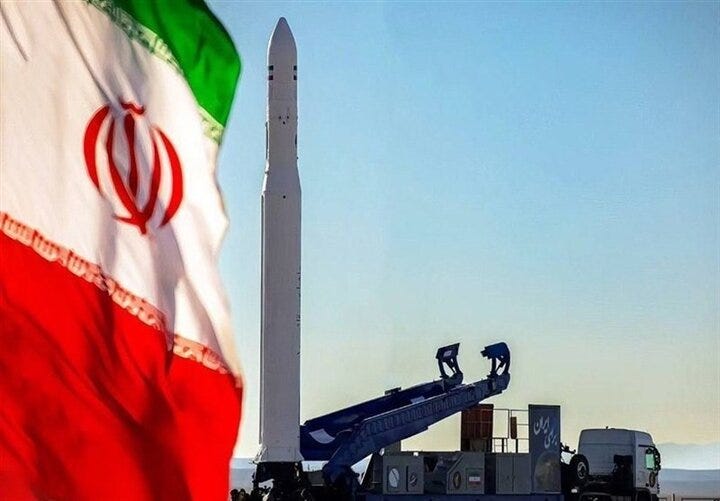
Iran Plans to Launch Kowsar 1.5 Earth Observation Satellite in Coming Months
Iran plans to launch an upgraded version of its domestically developed Kowsar Earth observation satellite, Kowsar 1.5, in the first half of the upcoming Persian calendar year, beginning 21 March 2025. Building on the capabilities of the previously launched Kowsar and Hodhod satellites, which focused on remote sensing and Internet of Things (IoT) applications for precision agriculture, the new satellite underscores Iran’s push for self-reliance, with over 85% of components indigenized. CEO Hossein Shahabi highlighted the challenges posed by international sanctions, which have spurred local innovation and expertise in satellite design and production. Shahabi emphasized the need for government support, including market guarantees and pre-purchase commitments, to secure investments and scale production for a constellation of satellites. This launch reflects Iran's strategic ambitions to advance its aerospace capabilities despite economic and geopolitical constraints.
Analyst: Iran’s Growing Space Power Poses Cyber Threats to Other Space Powers
Writing in the Geopolitical Monitor, analyst Sarah Katz notes that amid escalating tensions following Iran’s recent satellite launches, aerospace systems in Israel and the West face growing threats, particularly concerning communication and surveillance disruptions. Iranian capabilities in satellite and nuclear technology raise alarms about potential cyber-attacks on government and commercial satellites, risking data theft, compromised communications, and impaired visibility into Iran's nuclear activities. Beyond conventional Distributed Denial of Service (DDoS) and supply chain threats, advanced tactics such as backdoor installations via social engineering are emerging, exploiting privileged users and legacy satellite components. These attacks could manifest through "chatty" satellite subsystems signaling anomalies, often tied to outdated supplier code or over-the-air updates. Experts recommend leveraging AI and human expertise to detect Farsi-laden malicious code or communications, reinforcing monitoring of geopolitical-themed phishing campaigns. Aerospace organizations must remain vigilant against multifaceted cyber threats, as Iranian state actors like APT42 capitalize on geopolitical instability, amplifying the risk to both public and private sector satellite networks.
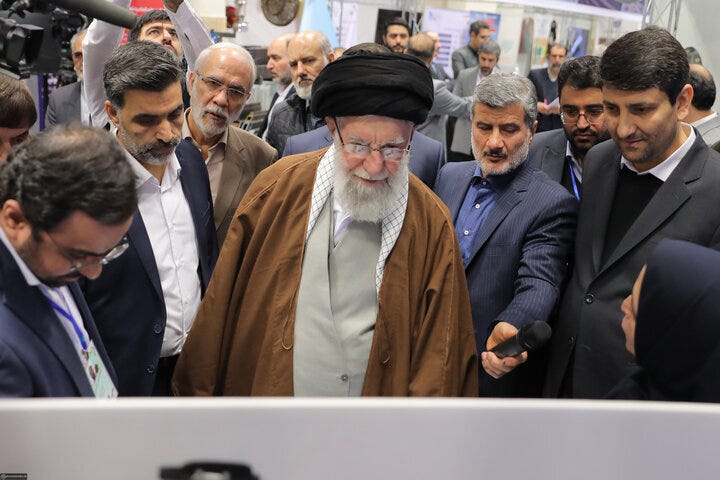
Iran’s Ayatollah Khamenei Emphasizes Role of Private Sector in Satellite Manufacturing
Ayatollah Seyyed Ali Khamenei, Supreme Leader of Iran, emphasized leveraging the private sector's high capabilities as the key to Iran’s progress during his visit to the Pioneers of Progress exhibition. The event showcased private sector achievements across diverse fields, including satellite manufacturing, AI, IT, aircraft repair, petrochemicals, and advanced industrial and medical technologies. Highlighting the strategic importance of private sector contributions, the exhibition underscored Iran's efforts to advance industries critical to economic and technological self-reliance. Ayatollah Khamenei also reaffirmed his focus on empowering domestic production, designating 1403 (2024-2025) as the year of "Surge in Production through People's Participation." This aligns with broader initiatives to integrate private-sector innovation into national development strategies.
Israel Space Developments
U.S. Space Force Early Warning Satellites Helped Thwart Iranian Missile Strikes Against Israel
During Iran’s unprecedented missile and drone barrage targeting Israel on 13 April 2024, the U.S. Space Force’s Mission Delta 4 played a critical yet largely unpublicized role in missile detection and warning operations. Leveraging advanced satellites like the Space-Based Infrared System (SBIRS) and ground-based radars, Space Force Guardians rapidly tracked over 300 incoming threats, relaying real-time data to U.S., Israeli, and allied forces to coordinate intercepts. This operation underscored the evolving complexity of modern missile defense, with simultaneous, large-scale attacks requiring rapid calculations, seamless teamwork, and advanced systems integration. Guardians emphasized how training and communication underpinned their success in mitigating potential casualties, as 98% of the weapons were intercepted or neutralized. Space Force leaders highlighted the growing frequency of such missile barrages globally, prompting the adoption of new strategies and training protocols to address this emerging "new normal." The operation not only showcased the Space Force’s critical role in modern warfare but also highlighted the importance of continued advancements in space-based defense technology and preparedness.
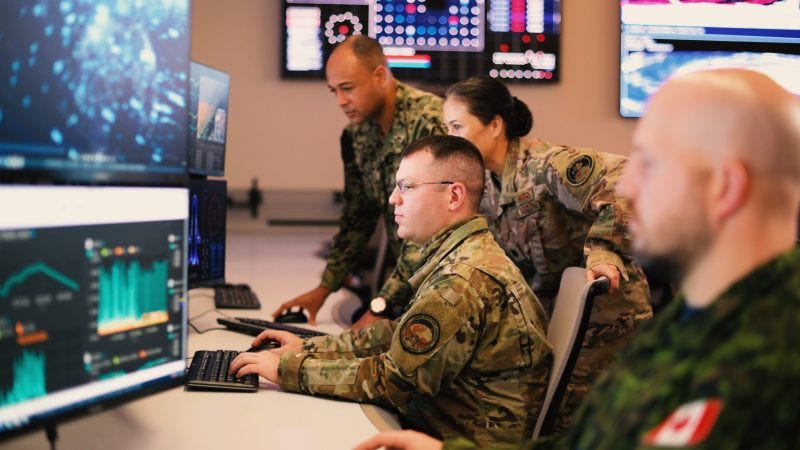
U.S. Space Force’s Missile Warning Unit Earns Award for Early Warning of Iran’s Missile Strike Against Israel
The U.S. Space Force's Mission Delta 4 demonstrated exceptional preparedness during Iran's unprecedented missile barrages against Israel in 2024, showcasing advancements in missile warning and response capabilities. Following an initial attack in April involving 300 missiles and drones, Guardians enhanced training, streamlined communication processes, and implemented critical software updates to address operational gaps. By the time of a second barrage of 200 ballistic missiles in October, the unit’s refined tactics and new training scenarios ensured faster data transmission and higher accuracy, enabling effective defenses by U.S., Israeli, and allied forces, resulting in minimal damage and no U.S. casualties. The Space Force’s role extended beyond alerts to facilitating active defense measures, such as Navy interceptors and regional anti-missile systems. This operational success earned Delta 4 the prestigious Gen. James H. “Jimmy” Doolittle Award, marking the first recognition of a Space Force unit for its role in safeguarding lives and demonstrating the critical importance of space-based missile warning systems in modern conflict scenarios.
U.S. Subsidiary of Israel’s Gilat Secures $5 Million DoD SATCOM Contracts
Israel’s Gilat Satellite Networks' U.S. subsidiary, Gilat DataPath, has secured over $5 million in contracts from the U.S. Department of Defense (DoD) and international defense forces, emphasizing its critical role in global military communications. These contracts, encompassing DKET terminals and Field Service Representative (FSR) support, will be fulfilled within the next year. Gilat DataPath's solutions are tailored to meet the stringent connectivity needs of defense operations in complex and demanding environments, highlighting its expertise in delivering robust, mission-critical systems. The contracts include both renewals and new agreements, reflecting widespread trust in the company's ability to provide seamless, reliable communication for military and government operations. According to Nicole Robinson, President of Gilat DataPath, this achievement underscores the company's commitment to supporting defense organizations worldwide, further solidifying its position as a key partner in military satellite communications.
Oman Space News
Oman to Launch Space Accelerators Program and Other Space Initiatives in 2025
Oman's Minister of Transport, Communications, and Information Technology, Eng. Said Hamoud Al Ma’awali, announced key space sector initiatives and legislative updates for the year. The ministry is prioritizing the launch of the Space Accelerators Programme, advancing the second phase of the Space Engineering Laboratory in partnership with Sultan Qaboos University, and implementing the next package of the National Capacity Building Program in the Space Sector. Efforts will also focus on mapping the involvement of government and academic institutions in the space sector to strengthen collaboration. Additionally, the ministry plans to modernize critical laws, including the Electronic Transactions Law, the Communications and Information Technology Regulatory Law, and the Anti-Information Technology Crimes Law, alongside drafting bylaws for government digital transformation. These efforts reflect Oman's commitment to fostering innovation, building national expertise in the space sector, and enhancing its regulatory framework to support digital and technological progress.
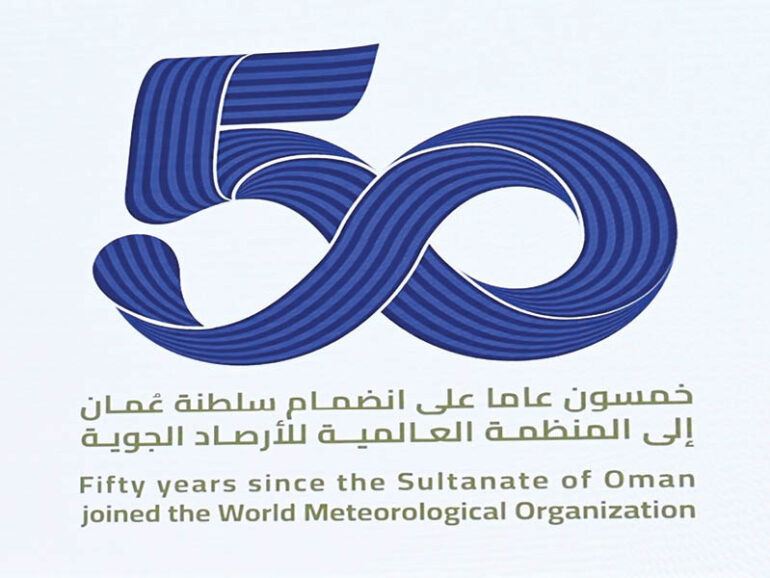
Oman Celebrates 50 Years of Weather Satellite Collaboration
Oman’s Civil Aviation Authority (CAA) marked 50 years of membership in the World Meteorological Organization (WMO) by unveiling a commemorative logo, reflecting the country’s enduring commitment to advancing meteorology and climate science through global collaboration. This milestone was celebrated during the 11th WMO-CGMS Virtual Laboratory Management Group meeting in Muscat, which convened over 35 international representatives to discuss satellite technology, training programs, and innovative applications in meteorology. Oman’s Centre of Excellence in Satellite Data Applications has been pivotal in regional training, supporting over 500 participants from 27 countries in 2024 alone, with programs spanning climate science, oceanography, and data services. Bolstered by partnerships with EUMETSAT, Sultan Qaboos University, and other institutions, Oman has enhanced its meteorological infrastructure, improving forecasting accuracy and public awareness of climate change. These advancements position Oman as a key player in regional and global efforts to adapt to and mitigate climate challenges.
Qatar Space Developments
U.S. Space Force Builds Space Campus at Qatar’s Al Udeid Air Base
The U.S. Space Force has initiated the construction of the Space Campus at Al Udeid Air Base, Qatar, marking a significant step in advancing regional space operations and capabilities. The groundbreaking ceremony on 14 January 2025 highlighted the project's strategic importance in enhancing collaboration, addressing increasing space-related demands, and reinforcing the longstanding U.S.-Qatar partnership. Deputy Commander Col. Frank Brooks underscored the facility’s role as a "beacon" for vital space systems supporting U.S. CENTCOM's mission of regional stability and security. Designed to bolster critical space missions, the campus will provide an advanced hub for personnel engaged in space-related warfare, including defending assets and maintaining precision navigation, satellite communications, and missile warning systems. This initiative strengthens the U.S. Space Force's commitment to global security and underscores the growing integration of space capabilities into defense strategies, with wide-reaching implications for regional and global stability.
Qatar’s Es’hailSat Strikes Agreement With Morocco’s SNRT to Broadcast Content Across MENA
Es’hailSat, Qatar’s satellite company, has entered into a multi-year, multi-transponder agreement with Morocco’s public broadcaster, Société Nationale de Radiodiffusion et de Télévision (SNRT). The partnership provides Direct-to-Home (DTH) services, satellite transponders for Digital Terrestrial Television (DTT), and video contribution services through the Es’hail-1 satellite at the 25.5° East orbital position. With its expansive Middle East and North Africa (MENA) coverage, Es’hailSat enhances SNRT’s reach, enabling broader access to Moroccan programming across the region. This collaboration reflects both organizations' commitment to delivering diverse, high-quality content aligned with regional audience preferences. By joining Es’hailSat’s premium video neighborhood, SNRT bolsters its ability to connect with viewers, underscoring Es’hailSat’s growing role as a leading provider of satellite services in MENA.
Other Regional Space News
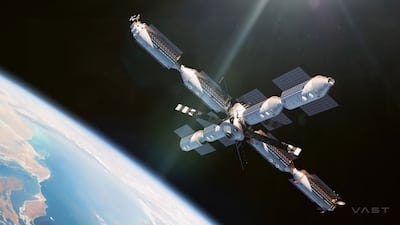
U.S. Executive: UAE and KSA Positioned as Key Partners in Commercial Space Stations
The UAE and Saudi Arabia, with their rapidly advancing space programs, are positioned as key partners for the growing commercial space sector, as highlighted by Max Haot, CEO of Vast Space, at the World Economic Forum. Haot emphasized the region’s potential as a major market beyond traditional International Space Station (ISS) partners, noting the UAE’s and Saudi Arabia’s "amazingly trained astronaut corps" and active space initiatives. The Trump administration’s focus on fostering public-private space partnerships and Elon Musk’s Mars ambitions could further drive global collaboration, particularly with Gulf countries. Vast Space, a key SpaceX partner, aims to pioneer the commercialization of space stations, inviting sovereign astronauts and private clients—including entities from the UAE and Saudi Arabia—to participate in missions. This aligns with the Gulf states’ ambitions to attract U.S. partnerships, bolstering their role as emerging leaders in the global space economy.
Gulf States Must Balance U.S.-China Geopolitical Rivalry in AI, Semiconductors, and Space
The Gulf states' ambitious technological and space initiatives, including satellite advancements, face challenges amid escalating U.S.-China tensions. Heavily investing in AI, data centers, and chip manufacturing, these countries, notably Qatar, Saudi Arabia, and the UAE, also rely on partnerships with both American and Chinese firms for critical technologies, mirroring dependencies in their satellite programs. While collaborations with U.S. tech giants like Microsoft and Google have spurred growth, significant reliance on Chinese technology, such as servers and chips, risks straining relations with Washington, especially as the U.S. enforces stricter export controls. This dual-track approach may soon force the Gulf states to choose a side, jeopardizing their aspirations for global leadership in innovation and space. Balancing these geopolitical dynamics will be critical to sustaining their transformative goals.
Egypt’s Nilesat Reports Slight Dip in 2024 Revenues
Egypt’s satellite operator Nilesat reported a slight dip in revenues for 2024, reaching $101.14 million compared to $101.82 million in 2023, but saw a substantial 24% rise in total profit to $42.98 million. This growth was underpinned by new strategic cooperation agreements with Es’HailSat of Qatar and Arabsat of Saudi Arabia. The partnerships aim to enhance satellite broadcasting and communication services across the Middle East and Africa, leveraging a unified and advanced system to better meet the diverse needs of regional customers. These developments signal Nilesat's strategic focus on regional collaboration to strengthen its market position amid evolving industry dynamics.
Bahrain’s NSSA Partners With Smart City Association for Space Workshops
Bahrain’s National Space Science Agency (NSSA), in collaboration with the Smart Cities Association, has launched a series of specialized workshops to promote the understanding and application of space science. Delivered by the Bahrain Space Team, the workshops will address diverse topics, including the role of space in smart city development, remote sensing, renewable energy innovation, space security, STEM education, and space law. NSSA CEO Dr. Mohammed Ibrahim Al-Asiri highlighted the initiative's alignment with sustainable development goals, emphasizing space science’s transformative impact on daily life and critical areas such as disaster management. This collaboration underscores Bahrain’s strategic focus on leveraging space science for societal and technological advancement.
Be sure to catch up with space activities in the region in the next edition of Middle East Space Monitor’s space roundup!




